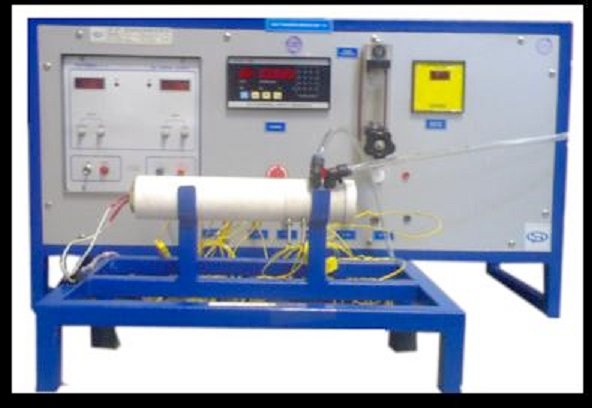First Law of Thermodynamics Test Apparatus: Heat Conduction and Convection Model TH 135
– Effect of heat conduction and convection on heat transfer
– Experiments with still air on free convection
– Functions of the optional software: educational software, data acquisition, system operation part :Fundamentals of Heat Transfer
– Heat conduction and convection are among the three basic forms of heat transfer and often occur together.
Sci-tech Heat Conduction and Convection Apparatus Model TH 135 allows basic experiments on both forms of heat transfer: heat conduction and convection.
At the heart of the unit are different metal samples. The samples are placed on a heater and are heated on one side. The heat is conducted through the sample and dissipated to the environment. The sample used behaves like a cooling fin. In addition there are fans below the sample. The flow rate of the fans is continuously adjustable in order to influence the convective heat transfer. The air flow is conveyed evenly around the sample. Consequently, besides conducting the experiment with still air (free convection), it is also possible to conduct experiments with flowing air (forced convection). The effect of different materials on heat conduction is demonstrated by comparing different samples.










